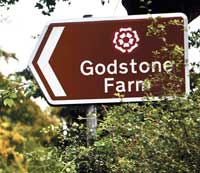E coli farm backs hygiene call

The open farm at the centre of the UK’s worst E coli outbreak has backed plans for a code of practice to improve visitor hygiene.
Jackie Flaherty, owner of Godstone Farm, Surrey, said the safety and welfare of visitors was of utmost importance.
“We welcome the proposal of co-operation between the various authorities and our Farm Attraction Network. We hope that this will lead to agreement on the question of regulation and a code of practice.”
Ms Flaherty’s statement followed an inquiry into the E coli outbreak which saw more than 90 people struck down with the potentially fatal disease last August.
“First of all we would like to say that we hope that all the children will make a full recovery, if they have not already done so,” she said.
The outbreak of E coli O157 last August was dreadful, Ms Flaherty added. Most farm staff had children, grandchildren, nephews or nieces who visited the farm.
“We are all aware that it could have been any one of them who became ill and our hearts went out to the families of those affected.”
George Griffin, a disease expert from London University, led the report into the 2009 E coli O157 outbreak.
It calls for the introduction of a voluntary accreditation scheme for open farms be based on a code of practice drawn up by the industry.
Relying on visitors to wash their hands afterwards was inadequate, suggests the report.
Open farms should minimise the chance of children and visitors coming into contact with animals and dung in the first place, it adds.
Ms Flaherty said: “We are keen to take part in the consultation process which may be set up.”
“It should ensure that there is a framework of reasonable practical measures that all open farms can put in place and that lessons are learned from this outbreak.”
But some rural campaigners described as an over-reaction the report’s suggestion that children should be banned from contact with animals during farm visits.
Charley May, who leads the Countryside Alliance campaign for outdoor education, said other measures would minimise any disease risk.
This included good on-farm hygiene, such as disinfecting animal pens daily and keeping public areas clean, said Ms May.
“We should not create a panic culture where children are cut off from rural Britain, its animals, and the fun and fascinating things our beautiful countryside offers.”
